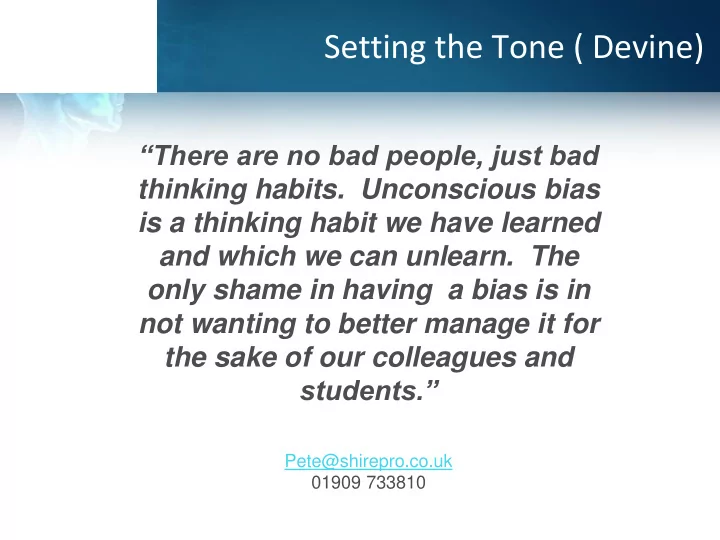

Setting the Tone ( Devine) “There are no bad people, just bad thinking habits. Unconscious bias is a thinking habit we have learned and which we can unlearn. The only shame in having a bias is in not wanting to better manage it for the sake of our colleagues and students.” Pete@shirepro.co.uk 01909 733810
Drivers For Change King et al (2010): ▪ Reduced complaints of incivility ▪ Improved customer satisfaction ratings Scott E. Page (2007) ▪ Improvements in hard outcomes such as ▪ Innovation depends less on IQ and more on customers having their needs met earlier in diverse people working together the interaction ▪ Diversity of thought – i.e. groups that display a range of perspectives outperform groups of Mckinsey (2012): Companies with diverse top like-minded experts ▪ teams exceeded others by: Diversity yields superior outcomes ▪ 56% in operating results ▪ 53% higher return on equity External ▪ Earnings before interest and taxes margins were 14% higher Peterson Institute for International Economics (2017) Internal • Companies with at least 30% female leaders can add as much as 6% to their net margins (EY reviewed 22,000 audits around the world) 2
Key facts about unconscious (implicit) bias Implicit biases develop and are maintained from our Experiences (patterns) , the Media we absorb, and the Culture we live in and have lived in Being biased is part of who we are; we are ALL biased and have a bias blind spot . Pronin (2002) but beware Duguid & Thomas – Hunt (2015 ) Biases are easily triggered under cognitive or emotional load .
Recommend
More recommend